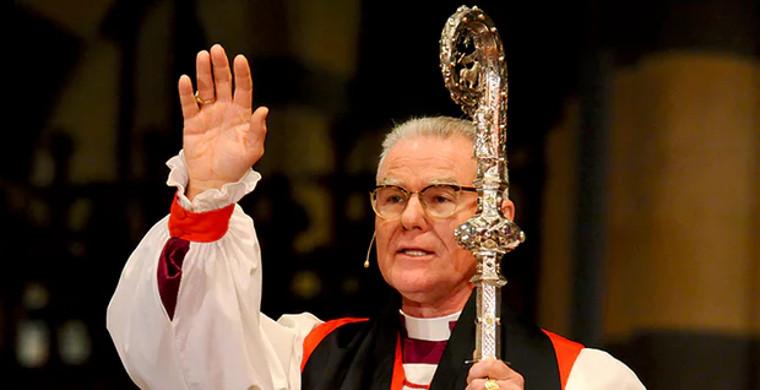Australia's Anglican hierarchy divided over marriage equality plebiscite
Five bishops write to Malcolm Turnbull urging him to reconsider the plan just days after the head of the Anglican church came out in support of the plebiscite
By Paul Karp
https://www.theguardian.com/
September 12, 2016
The Anglican church's senior clergy are split on whether to support the federal government's planned marriage equality plebiscite, with five bishops writing to the prime minister urging him to reconsider the plan.
The correspondence contrasts with the personal view of the head of the Anglican church, Melbourne archbishop Philip Freier, who wrote in support of the plebiscite last week.
In one letter sent on Thursday the bishop of Wangaratta, John Parkes, said the plebiscite would be "divisive and cause unnecessary harm to members of the Australian community".
On Monday, Malcolm Turnbull renewed the government's attack on Labor for opposing the plebiscite, claiming the opposition leader, Bill Shorten, "demeans the Australian people" by warning the campaign could be harmful.
The bishop noted that although Turnbull had assured a plebiscite campaign would be respectful, he was "deeply concerned that there are those who will engage in harmful, derogatory and damaging discourse, dividing communities and causing deep pain to our LGBTI brothers and sisters".
Parkes argued communities and Anglican congregations should be uniting around common values.
"From a Christian perspective I would describe some of these values as love for one's neighbour and the equal dignity of every person as a child of God."
Parkes criticised "the precedent a plebiscite on an issue of morality and civil rights will set".
"If on one contentious issue [parliament's] responsibility is abdicated to a popular vote then other contentious issues may follow. Such issues may include the treatment of asylum seekers and the equal rights of members of unpopular faith communities."
Lastly, Parkes noted the $160m cost of a plebiscite, which will now in fact balloon to $175m after cabinet approved a plan to give $7.5m to both the yes and no cases.
Parkes told Guardian Australia that the bishops of north Queensland, Bendigo, Gippsland and Willochra had sent letters to Turnbull in similar or identical terms arguing against the plebiscite. Parkes also copied his letter to Shorten.
On Friday, Freier wrote that he personally endorses the plebiscite because the government had a mandate for the policy and it would make the social reform easier to accept.
Parkes said "clearly there are polarised views in the Anglican church", but praised Freier for distinguishing the civil definition of marriage, which the church could accept being extended to same-sex couples, and the religious definition, which Freier said was unlikely to change.
Parkes said he and Freier also agree that no public funding should be given for the yes and no cases.
"The substantive issue of marriage equality is potentially more divisive, there are deeply polarised views within all churches," Parkes said. "The loudest voice that has been heard from the churches represents only one side of the debate -- the church doesn't speak with one voice [on marriage equality]."
Long-time marriage equality campaigner, Rodney Croome, congratulated Parkes and the other Anglican bishops for speaking out against the plebiscite and called on Labor to commit to block it.
"They are protecting LGBTI people from the harm and hatred that will come with a plebiscite and guarding their own congregations from the deep divisions [it] will cause," he said.
Croome said he feared the Anglican church's "long journey towards accepting LGBTI people" will be set back by a plebiscite which would "divide congregations into pro and anti camps".
On Monday Shorten warned of the risk that teenagers could self-harm as a consequence of a strenuous no campaign during the plebiscite.
"Let me be as blunt as possible: a no campaign would be an emotional torment for gay teenagers and, if one child commits suicide over the plebiscite, then that is one too many," he told parliament.
Turnbull said Shorten was "basically saying that Australians are unable to have a civil discussion about a fundamental question".
"He demeans the people he claims to represent -- he demeans their civility; he insults them; he disrespects them."














